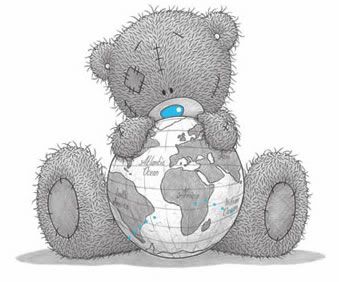Okay so my very first post for my SS blog came weeks late due to my many commitments to my PDP (SYF and Concert) and also SNYTO (concert) but oh wells! I’m going to do it all today. The first thing I’m going to talk about is Music and it’s relationship with Globalization. Why music you may ask? I am a great music enthusiast, listening to music of all genres (I dig Bhangrah pop, Hip Hop, Classical, Pop among other things), I play music (my bad singing is not contained to the bathroom only and I also play the Trombone in the college’s Symphonic Band which very recently clinched a Gold in the biennial Singapore Youth Festival Central Judging!) and most importantly, the annual Eurovision Song Contest has just concluded with Serbian singer, Marija Serifovic victorious!
 Serifovic, 23, singing her heart out
Serifovic, 23, singing her heart outRead More Here
http://news.bbc.co.uk/2/hi/entertainment/6650599.stm The official Logo introduced in 2004 for a consistent visual identity. The host country's flag appears in the heart.
The official Logo introduced in 2004 for a consistent visual identity. The host country's flag appears in the heart.So what exactly is the Eurovision Song Contest and how does it affect the world and globalization? The Eurovision Song Contest is an annual competition which started in 1956, held among active member countries of the European Broadcasting Union (EBU). Participating countries each submit a song to be performed on live television; then cast votes for the other countries' songs, to find the most popular song in the competition.
It is one of the most watched non-sporting events in the world, with drawing huge audience figures of 100 million and 600 million internationally over the past few years. It has been broadcasted not just in Europe but to non participating countries such as Australia, Azerbaijan, Canada, Egypt, Hong Kong, India, Jordan, Korea, New Zealand and the United States! It is so popular that it has also been broadcasted online since 2000! The Contest is historically known for being mainly a bastion of formulaic, orchestrated pop music. However it has featured a vast, diverse array of songs, including such musical genres as Arab, Balkan, Celtic music, Dance, Folk, Israeli, Greek, Latin, Nordic, Pop-rap, Rock, and Turkish.
Some of the prominent winners from the show are legendary Swedish band from the Seventies, ABBA who won in 1972 with the song Waterloo, singing sensation and musical diva, Céline Dion, who won for Switzerland in 1988 with the song Ne Partez Pas Sans Moi.

 Two of the competition's greatest Alumnis, Celine Dion and ABBA
Two of the competition's greatest Alumnis, Celine Dion and ABBASo how does this contest affect globalisation? This contest reaches out to a huge audience and also helps to bring the people from the European, who were shaken after the two world wars, together and celebrate in one festive occation! By having to vote for other countries it also allows the european nations to take greater note of their neighbouring countries and also encourage foreign talent! Music unifies the heart and soul and the Eurovision Song Contest is a great medium to get introduced to different artistes from different regions with different genres. Music also allows one to get a glimpse of an understand the lives of people from a different country, this will help the members of Europe to understand each better and also compete in friendly competition as compared to one of ammunation and weaponry. So long live music and the wonders it does for us and the world!
Your Cultural Expert, Nicholas Chua!
Labels: Nicholas Chua - Culture Expert





